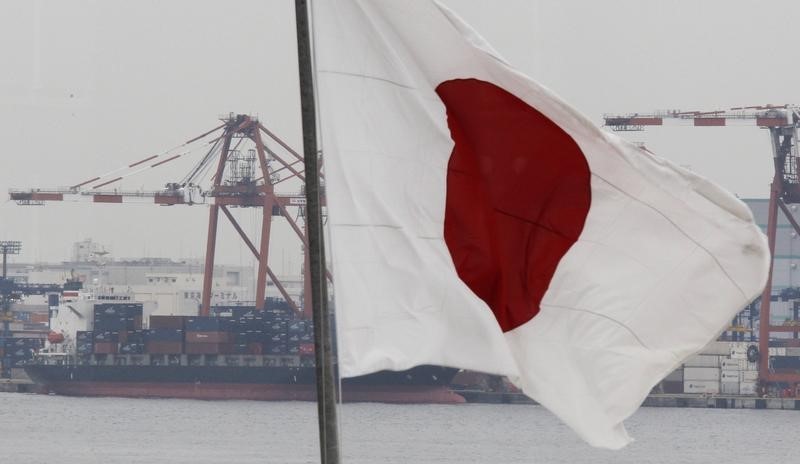By Stanley White
TOKYO (Reuters) - Japan's industrial output unexpectedly fell in July in a worrying sign that high inventories and weak overseas demand could further hamper an economy struggling to recover from a slump in the second quarter.
The 0.6 percent decline in output in July was much worse than the median estimate for a 0.1 percent increase and follows a 1.1 rise in June, trade ministry data showed on Monday.
The economy is still likely to recover in July-September after a contraction in the previous quarter, but the weak industrial production figures suggest growth will be languid, which could bolster the argument for fiscal stimulus.
"Domestic demand is not the only factor behind these weak results," said Hidenobu Tokuda, senior economist at Mizuho Research Institute.
"There are problems with overseas demand as well. The economy is not doing as well as I expected. There could be more talk of economic stimulus measures."
Output fell in July as companies produced less smartphone parts, computers and cars, the data showed.
Manufacturers surveyed by the Ministry of Economy, Trade and Industry expect output to risen 2.8 percent in August and decrease 1.7 percent in September.
The forecast for August looks unrealistic, because many of the companies who said they expect their output to rise rely more on export demand, Mizuho Research Institute's Tokuda said.
One risk to the outlook for industrial output is domestic consumer spending. Weak household consumption contributed to a contraction in gross domestic product in April-June.
Policymakers have repeatedly said this was a one-off factor due to bad weather and that spending should do better this month, when the weather was better. However, the data has yet to show a clear recovery.
Export demand is another worry, especially after the scale of China's economic problems sparked a global selloff in share markets.
Some members of Japan's ruling Liberal Democratic Party have already started talking about compiling new economic stimulus measures.
Prime Minister Shinzo Abe's cabinet has indicated that it won't be stirred into action so soon, but calls for more fiscal spending could grow if economic data do not start improving.

This is also a tense time for the Bank of Japan because it is counting on an acceleration in economic growth to drive consumer prices to its 2 percent inflation target, but consumer prices are currently at zero and the BOJ's price target looks increasingly distant.